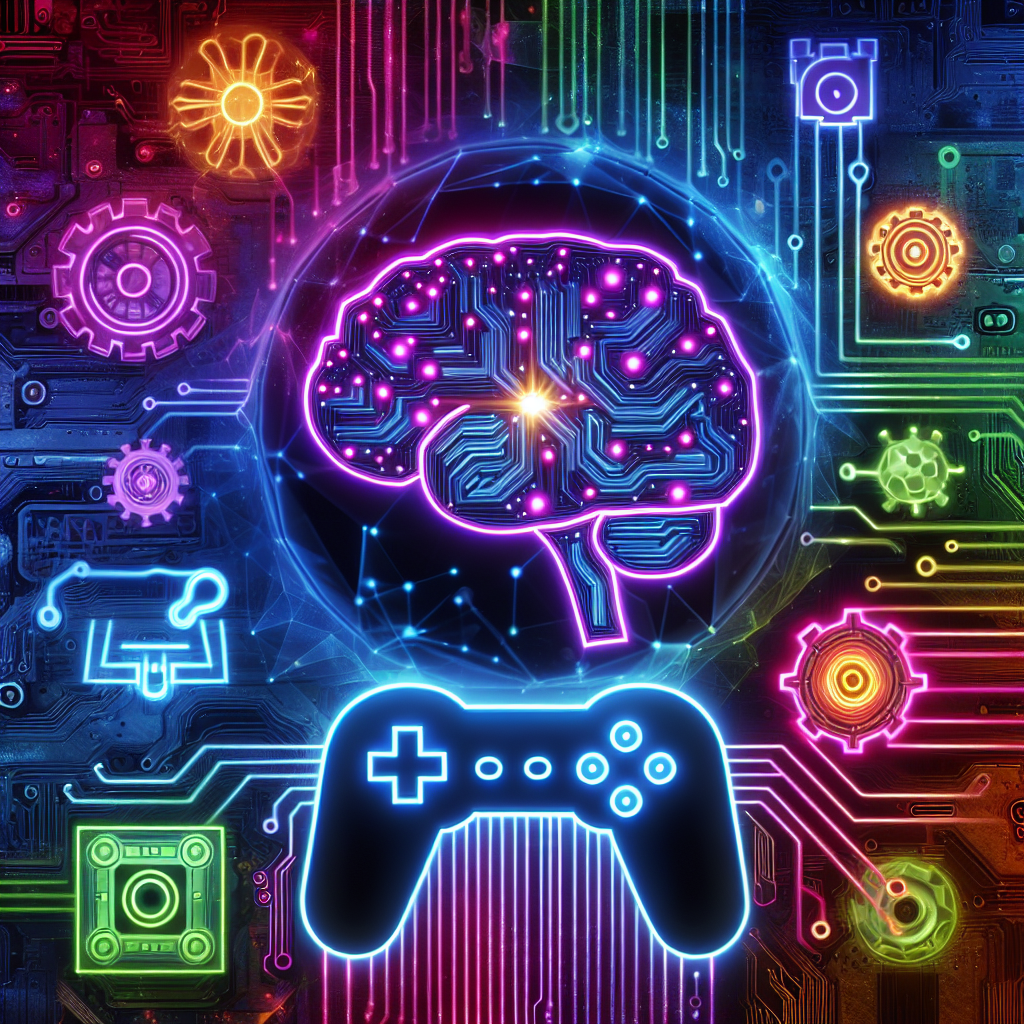Artificial Intelligence (AI) has become an integral part of many aspects of our lives, including the world of gaming. AI technology has revolutionized the way games are developed, played, and experienced, and has had a significant impact on game communities around the world. In this article, we will explore the various ways in which AI has influenced game communities, and how it is shaping the future of gaming.
One of the primary ways in which AI has impacted game communities is through the development of more realistic and immersive gaming experiences. AI algorithms are used to create intelligent and responsive non-player characters (NPCs) that behave more like human players, making the gameplay more challenging and engaging for gamers. These AI-powered NPCs can adapt to the player’s actions, learn from their behavior, and even develop their own strategies and tactics, which adds an element of unpredictability and excitement to the game.
AI technology has also been used to enhance the graphics and visuals of games, making them more realistic and visually stunning. AI algorithms can generate high-quality textures, lighting effects, and animations in real-time, creating a more immersive and visually appealing gaming experience for players. This has helped to push the boundaries of what is possible in terms of graphics and visuals in games, and has raised the bar for the industry as a whole.
In addition to enhancing the gameplay and visuals of games, AI has also had a significant impact on the social aspects of game communities. AI-powered chatbots and virtual assistants have been developed to help players navigate the game world, provide tips and hints, and even engage in conversations with players. These AI-powered assistants can also help to moderate and manage online communities, ensuring that players adhere to the rules and guidelines of the game, and promoting a positive and inclusive gaming environment.
AI algorithms are also being used to analyze player behavior and preferences, and to personalize the gaming experience for individual players. By collecting and analyzing data on player interactions, AI can recommend games, levels, and challenges that are tailored to the player’s skill level and interests, making the gaming experience more enjoyable and engaging for each individual player. This level of personalization has helped to create stronger bonds within game communities, as players feel more connected to the game and to each other.
Another way in which AI has impacted game communities is through the development of AI-powered tools and technologies that enable players to create and share their own content. AI algorithms can be used to generate procedural content, such as levels, characters, and environments, which can be customized and shared with other players. This has led to a proliferation of user-generated content in games, which has enriched the gaming experience for players and fostered a sense of community and collaboration among gamers.
AI technology has also been used to improve matchmaking algorithms in online multiplayer games, ensuring that players are matched with opponents of similar skill levels and playing styles. This has helped to create a more balanced and competitive gaming environment, where players can enjoy fair and challenging matches against opponents of comparable skill. This has also helped to reduce toxicity and negative behavior in game communities, as players are less likely to become frustrated or discouraged by unfair matchups.
Overall, the impact of AI on game communities has been overwhelmingly positive, as it has enhanced the gameplay, visuals, social aspects, and personalization of games, and has fostered a sense of community and collaboration among gamers. As AI technology continues to advance and evolve, we can expect to see even more innovative and exciting developments in the world of gaming, and a further blurring of the lines between the virtual and real worlds.
FAQs:
1. How is AI used in game development?
AI is used in game development to create intelligent and responsive NPCs, enhance graphics and visuals, personalize the gaming experience for individual players, improve matchmaking algorithms, and generate procedural content.
2. How does AI enhance the gameplay experience for players?
AI enhances the gameplay experience for players by creating more challenging and engaging NPCs, adapting to player behavior, learning from player actions, and developing its own strategies and tactics.
3. What are some examples of AI-powered tools and technologies used in games?
Some examples of AI-powered tools and technologies used in games include chatbots, virtual assistants, matchmaking algorithms, procedural content generation, and player behavior analysis.
4. How does AI impact game communities socially?
AI impacts game communities socially by moderating and managing online communities, providing tips and hints to players, analyzing player behavior and preferences, personalizing the gaming experience, and fostering a sense of community and collaboration among gamers.

